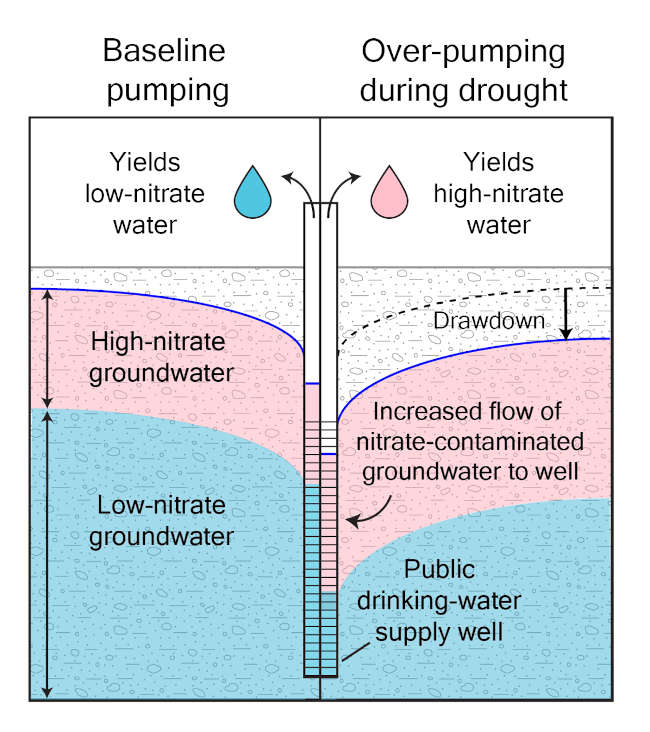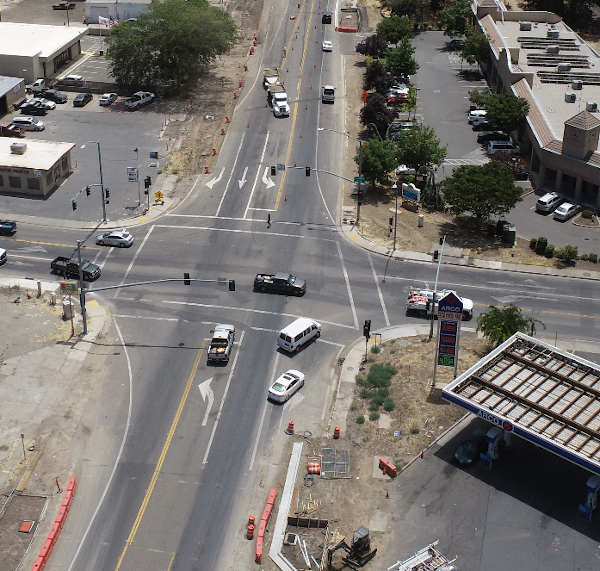- Lake County News reports
- Posted On
Increased pumping in California’s Central Valley during drought worsens groundwater quality

Intensive pumping of aquifers during drought can speed up deterioration of groundwater quality, according to a new study by the U.S. Geological Survey.
The results highlight clean drinking water supply vulnerabilities in California and other western states currently experiencing record drought conditions.
“Water quality problems from legacy groundwater pollution could get worse, faster, when pumping increases during drought,” said Dr. Zeno Levy, a research geologist with the USGS. “This could lead to more public drinking-water wells being shut down if costly treatment or cleaner water sources to mix with are not available.”
Researchers examined 30 years of data from California’s Central Valley to find increasing nitrate concentrations at public drinking-water wells were more prevalent in areas where groundwater levels dropped rapidly during drought.
Nitrate is a contaminant from fertilizer typically present at elevated concentrations in shallow groundwater throughout the Central Valley due to decades of agricultural land use.
Scientists found that increased pumping from wells during drought can pull shallow, contaminated groundwater down to depths commonly tapped for public drinking-water supply.
Previous groundwater research has focused on the risk of wells being overdrawn and running dry during drought. The new study provides a major advancement to understanding the related consequences to water quality caused by over pumping.
The study is unique in that it looked at regional linkages between groundwater use and quality, rather than local patterns at the scale of individual wells. This research was undertaken as part of a cooperative effort between the USGS and the California State Water Resources Control Board’s Groundwater Ambient Monitoring and Assessment Program.
The study "Critical aquifer overdraft accelerates degradation of groundwater quality in California’s Central Valley during drought" is published in Geophysical Research Letters.








